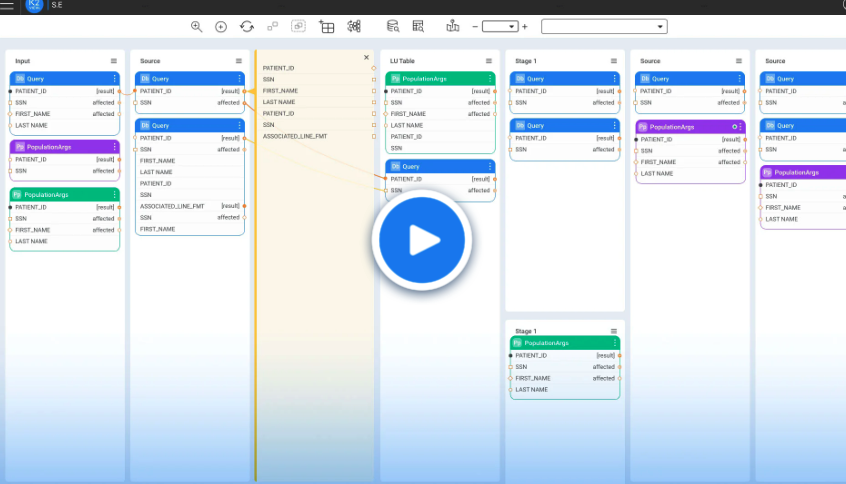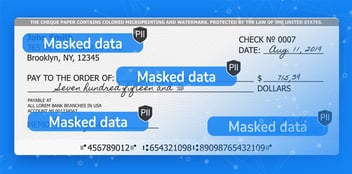Protecting PII and sensitive data with free data masking tools may be tempting, but there are major risks involved. Here’s what you need to know.
What Are Data Masking Tools?
Data masking tools are software products that obfuscate sensitive data, so that Personally Identifiable Information (PII) from the original source data can’t be detected.
Data masking is a crucial aspect of data security, especially in scenarios where organizations need to access, share, or use sensitive information without exposing anyone’s personal details. Data masking, as well as other techniques like data tokenization, encryption, and pseudonymization, safeguard PII and other sensitive data like financial or medical records.
Maintaining the referential integrity of the masked data is also critical when testing software applications or training Machine Learning (ML) models.
Striking the right balance between data protection and utility when masking data is essential, to support the diverse needs of enterprise operations, regulatory compliance, and data sharing.
Get Gartner’s market guide for data masking for FREE.
What to Need to Know About Free Data Masking Tools
When considering free data masking tools, it’s important to remember the expression, “You get what you pay for.” Cutting corners today – on something as important as a data privacy protection – can leave your company liable to penalties in the future.
When looking at different vendors, it’s natural to want to factor in price/cost. However, free tools come with costly risks. Without proper protection, sensitive data could be exposed – leading to millions of dollars in fines for non-compliance with data protection laws (like GDPR, CPRA, and HIPAA) and a devastating blow to your brand reputation.
Additionally, commercial tools often offer a much broader range of features, including dynamic data masking, unstructured data masking (of images and PDFs), referential integrity enforcement, Role-Based Access Control (RBAC) and/or Attribute-Based Access Control (ABAC), and connectivity to any underlying data source (including SQL and non-SQL databases).
Problems with Free Data Masking Tools
For enterprises with complex data environments, free data masking tools simply don’t add up due to LIMITED:
-
Features
Free tools usually offer a basic set of features, while enterprises require advanced functionalities like support for various data types, sophisticated masking algorithms and transformations, as well as integration capabilities with other tools and platforms.
-
Scalability
Enterprise data networks typically handle massive amounts of sensitive information. Free tools may lack the scalability needed to efficiently mask data at enterprise scale, leading to faulty execution, performance issues, and increased processing times.
-
Regulatory compliance
Enterprises – especially in highly regulated industries like financial services, healthcare, and telecommunications – must adhere to stringent data protection laws. Commercial tools provide better compliance features and support, ensuring that the data masking techniques align with specific regulatory requirements.
-
Customization and flexibility
Enterprises often need to tailor their data masking software to their needs and free tools tend to be less flexible. Commercial solutions typically provide more customization options.
-
Security measures
Free tools may not undergo the same level of scrutiny and testing as enterprise-grade solutions. Security is paramount for enterprises, and commercial tools generally come with robust security features, regular updates, and dedicated support to address emerging threats.
-
Support and maintenance
Enterprise-grade tools must be professionally supported, with regular updates. In contrast, free tools may lack ongoing maintenance and dedicated customer support, making it challenging for enterprises to resolve issues quickly or receive assistance when needed.
-
Integration with existing systems
Enterprises often have many different data platforms (on-prem, cloud, or hybrid), applications, and data source systems. Paid tools are designed to integrate seamlessly with a wide range of platforms, ensuring smooth integration with the existing IT infrastructure. Free tools may lack the necessary compatibility and integration capabilities such as multi-source data extraction.
In summary, while free data masking tools might serve the needs of knowledgeable and resourceful developers working on smaller-scale projects, companies with complex data networks, that need to comply with increasingly stringent data protection laws, are likely to benefit more from robust, enterprise-grade commercial solutions.
List of Free Data Masking Tools
In case you’re interested at looking at specific solutions to understand how they stack up, the following are a few examples of free data masking tools:
-
DataCapsule
DataCapsule is a simple, string-only masking algorithm that hides a readable string value inside a data capsule using a generated key. Generated data capsules can only be opened using the same key that was originally used to create them.
-
DataMasker
DataMasker is a free data masking and/or anonymizer library for SQL Server written in .NET, with data generated via a third-party provider. It’s used to mask data once it’s been extracted from production databases to staging or development sites.
-
JSanitizer
JSanitizer is a configurable extension method used to sanitize sensitive data found in XML and JSON formats. The default utility, which runs on .NET Core 3, Visual Studio, or CS code, masks passwords via complete replacement or the addition of other values.
-
Zoro
Zoro is a data masking and anonymization utility that fetches data from a database or a CSV file. It can either create a CSV file or run SQL statements with the masked data. It can be used as a command line program or as a .NET standard 2.1 library.
Choosing the Right Data Masking Tool
Enterprise masking tools should be able to:
-
Ingest data from any source while automatically discovering PII, metadata, and schema
-
Mask structured or unstructured data (statically or dynamically)
-
Replace sensitive data with realistic, fake data
-
Maintain the referential integrity of all masked data across all systems, and scale easily.
-
Control access via RBAC and/or ABAC
K2View has patented data masking technology based on a business entity approach. When data is ingested, organized, masked, and stored as business entities – corresponding to individual customers, devices, orders, etc. – it’s always complete, consistent, and easy to access. And, regardless of the different formats or technologies of the original data, the referential integrity of the masked data is always maintained.
You might imagine that software developers or data engineers looking at free data masking tools are probably from smaller companies with simpler projects. But you might be surprised to learn that some are from bigger companies with more complex projects – but who want to avoid the hassles of the procurement process.
Data professionals should analyze the benefits, costs, and risks of commercial vs free data masking tools to determine which are best for their needs.
Learn more about K2view entity-based data masking tools.













